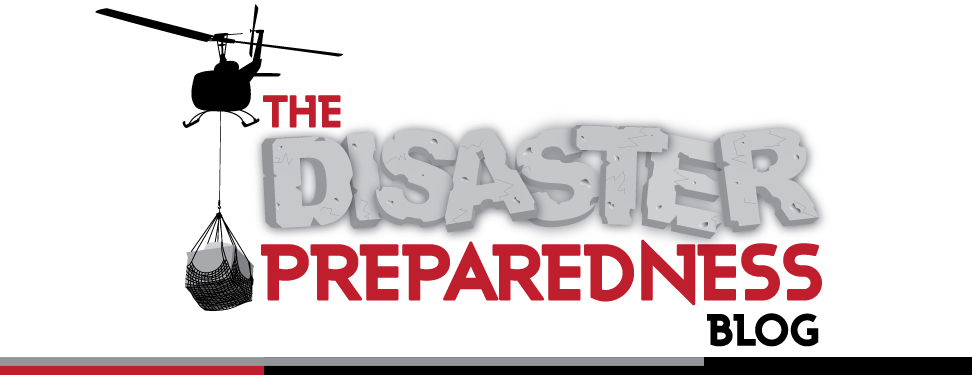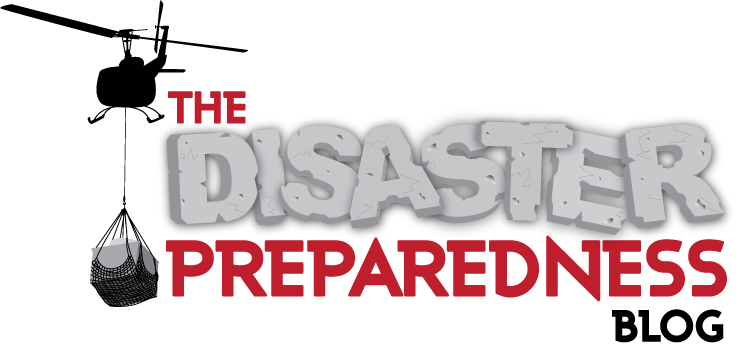What Does Preparedness Mean To You? Tell Me and You May Win A Prize
 Monday, October 4, 2010 at 11:26AM | |
Monday, October 4, 2010 at 11:26AM | |  Email Article
Email Article Preparedness and being prepared mean different things to different people. To many people being prepared means having enough water and canned food, or power bars to get them through a couple of days. To others it means being ready to survive for a year or more on their own.
I have met people who prepare for their neighbors, and extended family. I've met others who stock up additional supplies to barter with other people. I like these folks, but admittedly, I myself am not this prepared at the moment for an event. I would like to be, and used to be, but since I have relocated to California and gotten married, this is not the case. I am working on changing this as I look at "prepping" as a continual process.
So this brings me to the title of this post as well as the latest contest here on Disaster Preparedness Blog. What does Preping mean to you? What level are you prepared for and what are some of the steps you have taken to prepare? Maybe you're new, just starting out and learning about it now. If so, tell me where you are at by leaving a comment below.
This contest will remain open until Midnight PST on October 31, 2010. I will announce the winner next month by November 15, 2010. The winner will receive an Autographed copy of Arthur T. Bradley's new book: Handbook To Practical Disaster Preparedness For The Family.
A Big Thank You! To Arthur T. Bradley for making this available, check out his site and more about the book by going to Disaster Preparer.








Reader Comments (8)
Being in the disaster recovery field being prepared for a disaster means a lot more than having a few boxes of non perishable food and a few gallons of water available in case of a disaster. In the event of a major disaster, it can take several weeks before things even start to get back to normal in an area.
We have to provide everything we could possibly need, including emergency generators, fuel for generators and vehicles, additional clothing, medical supplies as well as food and water. In some cases, we also have to provide lodging because all available space is taken by people whose homes have been damaged.
Best advice to prepare for a disaster, have a plan. Know where you can go to be safe if you have warning and evacuate when the authorities tell you to. And listen to the authorities when they tell you not to enter an area. Don't attempt to get back to your home until they tell you it is safe.
Have several days worth of non-perishable food and water, not just one or two. Also gasoline for your vehicle, if power is out, gas pumps don't work. Take spare clothing, bedding and any medications with you. If you have time before the disaster, get additional medications from the pharmacist. Have copies of all important documents in a portable waterproof container that you can grab and go. This includes homeowners insurance documents, copies of bank and credit card statements, auto insurance, passports and any other vital documents including copies of any prescriptions.
An emergency band radio that works off a hand crank to keep you informed of what is going on, matches or a cigarette lighter, a hand can opener, a flashlight, hand sanitizer and baby wipes to wash with are all good things to have in your emergency evacuation kit. And don't forget your eyeglasses - you may not have sanitary enough conditions to wear contact lenses.
Even if you are not evacuated it is best to have these things on hand. Fill your bathtubs with water - this is used to flush the toilets and for bathing, have separate clean water supplies for drinking and cooking. Use a grill or sterno for cooking if the power goes out. Have plenty of non-electronic games to keep children occupied.
And don't forget about your pets. Check into emergency shelters for your pets beforehand, and make sure you stock up on pet foods if you get prior warning and are not evacuating.
Don't wait until the last minute to purchase your emergency supplies. When a disaster is imminent things sell out quickly.
Have a plan with your family members and a designated place to meet up outside of your immediate area in case you are separated, cell phone lines get jammed up or towers destroyed, and land lines may not work.
Preparedness is a hard thing, but for me there's a good way to be prepared and that is self and social awareness.
Making yourself aware, doesn't just make one have some preparedness but also precautions to start of.
Survival is not a matter of days of even months. It is an approach to life that requires people to completely change their way of thinking.
It requires not only storing food for future needs, it requires the knowledge of how to grow and preserve food and use native foods. It requires the knowledge to use not only pre-packaged first aid equipment, but how to use native medicines. Most of all, it requires a mind-set to survive, regardless of the odds. This means passing on not only fundametal truths that we believe in, but also martial arts skills as well as firearms skills.
In most places in this country, it is possible to survive off of the land indefinately. The next step is rebuilding.
Yes, Keith..I have to prepare myself. Especially living in California. With all the earthquakes we've been having lately, you never know when "the big one" will hit. Good post.
I recently experienced a power outage that lasted a couple of days, which means no running water. I had everything I needed, but I had no way of cleaning myself or my kids, and I did not want to use our drinking water. I remembered that I had purchased the large body towels called KLENZ xxl shower in a towel. Well, we tried them out, and I will tell you other than some food and water, this is an absolute must.
This product is much better than trying to use baby wipes. It helped my crying kids calm down and felt good to them as it not only cleaned them off, but cooled them down too. I would recommend them to anybody. I purchased mine at Costco.